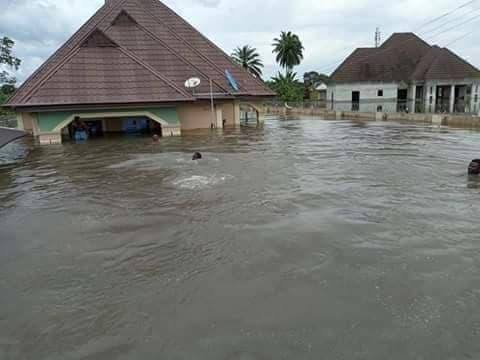So far about 500 lives have been lost and 1.4 million others have been displaced from their homes as floods continue to ravage parts of Nigeria, Ministry of Humanitarian Affairs has disclosed.
Floods caused by abundant rains and poor infrastructure have affected North Central, South East and South South in what appears to be the worst floods in a decade sparking fears they could worsen food insecurity and inflation.
“Similarly, 45,249 houses were totally damaged… while 70,566 hectares of farmlands were completely destroyed,” added the statement from the ministry’s Deputy Director Information, Rhoda Ishaku Iliya.
National Emergency Management Agency spokesman Manzo Ezekiel told AFP on Wednesday the latest figures were from last weekend.
While the rainy season usually begins around June, most deaths and displacements started “around August and September” Ezekiel added.
“We are taking all the necessary actions to bring relief to the people affected by the flood,” humanitarian affairs ministry official Nasir Sani-Gwarzo said.
Fuel scarcity caused long queues at petrol stations in the capital Abuja this week after tankers were blocked by floods in neighbouring states.
In southern Anambra state, 76 people died when a boat capsized last Friday during flooding of the Niger River.
More abundant rains are expected in the coming weeks and months – the rainy season typically ends in November in northern states and in December in the south.
Until Thursday, “heavy rainfall is anticipated over parts of Taraba, Ebonyi, Benue and Cross Rivers State,” the Meteorological Agency said on Facebook, adding that “flash flooding is likely”.
Floods were also caused by the release of water from several damns, a process that was meant to prevent excessive flooding.
The high level of damage caused is also because “people violate regional planning (rules), constructing (houses and buildings) near waterways,” said Ezekiel.


